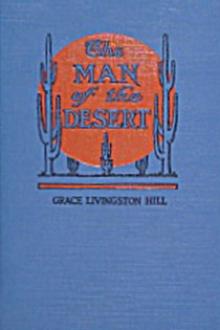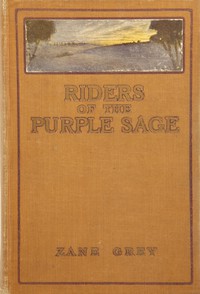The Desert of Wheat, Zane Grey [good non fiction books to read .TXT] 📗

- Author: Zane Grey
Book online «The Desert of Wheat, Zane Grey [good non fiction books to read .TXT] 📗». Author Zane Grey
She lifted her face to the lonely sky, and her hands pressed to her breast where the deep ache throbbed heavily.
"It's not that I can't give him up," she whispered, as if impelled to speak. "I can. I have given him up. It's this torture of suspense. Oh, not to know!… But if that newspaper had claimed him one of the killed, I'd not believe."
So Lenore trusted more to the mystic whisper of her woman's soul than to all the unproven outward things. Still trust as she might, the voice of the world dinned in her ears, and between the two she was on the rack. Loss of Jim—loss of her mother—what unfilled gulfs in her heart! She was one who loved only few, but these deeply. To-day when they were gone was different from yesterday when they were here—different because memory recalled actual words, deeds, kisses of loved ones whose life was ended. Utterly futile was it for Lenore to try to think of Dorn in that way. She saw his stalwart form down through the summer haze, coming with his springy stride through the wheat. Yet—the words—mortally wounded! They had burned into her thought so that when she closed her eyes she saw them, darkly red, against the blindness of sight. Pain was a sluggish stream with source high in her breast, and it moved with her unquickened blood. If Dorn were really dead, what would become of her? Selfish question for a girl whose lover had died for his country! She would work, she would be worthy of him, she would never pine, she would live to remember. But, ah! the difference to her! Never for her who had so loved the open, the silken rustle of the wheat and the waving shadows, the green-and-gold slopes, the birds of the air and the beasts of the field, the voice of child and the sweetness of life—never again would these be the same to her, if Dorn were gone forever.
That ache in her heart had communicated itself to all her being. It filled her mind and her body. Tears stung her eyes, and again they were dry when tears would have soothed. Just as any other girl she wept, and then she burned with fever. A longing she had only faintly known, a physical thing which she had resisted, had become real, insistent, beating. Through love and loss she was to be denied a heritage common to all women. A weariness dragged at her. Noble spirit was not a natural thing. It must be intelligence seeing the higher. But to be human was to love life, to hate death, to faint under loss, to throb and pant with heavy sighs, to lie sleepless in the long dark night, to shrink with unutterable sadness at the wan light of dawn, to follow duty with a laggard sense, to feel the slow ebb of vitality and not to care, to suffer with a breaking heart.
Sunset hour reminded Lenore that she must not linger there on the slope. So, following the grass-grown lane between the sections of wheat, she wended a reluctant way homeward. Twilight was falling when she reached the yard. The cooling air was full of a fragrance of flowers freshly watered. Kathleen appeared on the path, evidently waiting for her. The girl was growing tall. Lenore remembered with a pang that her full mind had left little time for her to be a mother to this sister. Kathleen came running, excited and wide-eyed.
"Lenore, I thought you'd never come," she said. "I know something. Only dad told me not to tell you."
"Then don't," replied Lenore, with a little start.
"But I'd never keep it," burst out Kathleen, breathlessly. "Dad's going to New York."
Lenore's heart contracted. She did not know how she felt. Somehow it was momentous news.
"New York! What for?" she asked.
"He says it's about wheat. But he can't fool me. He told me not to mention it to you."
The girl was keen. She wanted to prepare Lenore, yet did not mean to confide her own suppositions. Lenore checked a rush of curiosity. They went into the house. Lenore hurried to change her outing clothes and boots and then went down to supper. Rose sat at table, but her father had not yet come in. Lenore called him. He answered, and presently came tramping into the dining-room, blustering and cheerful. Not for many months had Lenore given her father such close scrutiny as she did then. He was not natural, and he baffled her. A fleeting, vague hope that she had denied lodgment in her mind seemed to have indeed been wild and unfounded. But the very fact that her father was for once unfathomable made this situation remarkable. All through the meal Lenore trembled, and she had to force herself to eat.
"Lenore, I'd like to see you," said her father, at last, as he laid down his napkin and rose. Almost he convinced her then that nothing was amiss or different, and he would have done so if he had not been too clever, too natural. She rose to follow, catching Kathleen's whisper:
"Don't let him put it over on you, now!"
Anderson lighted a big cigar, as always after supper, but to Lenore's delicate sensitiveness he seemed to be too long about it.
"Lenore, I'm takin' a run to New York—leave to-night at eight—an' I want you to sort of manage while I'm gone. Here's some jobs I want the men to do—all noted down here—an' you'll answer letters, 'phone calls, an' all that. Not much work, you know, but you'll have to hang around. Somethin' important might turn up."
"Yes, dad. I'll be glad to," she replied. "Why—why this sudden trip?"
Anderson turned away a little and ran his hand over the papers on his desk. Did she only imagine that his hand shook a little?
"Wheat deals, I reckon—mostly," he said. "An' mebbe I'll run over to Washington."
He turned then, puffing at his cigar, and calmly met her direct gaze. If there were really more than he claimed in his going, he certainly did not intend to tell her. Lenore tried to still her mounting emotion. These days she seemed all





Comments (0)